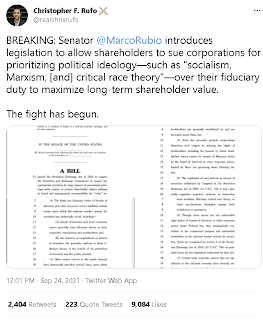The Matrix is a film about work. Long before Neo escapes the matrix he has to break out of a much more mundane space of confinement, the office cubicle. The film is thus part of that odd series of films that came out in 1999 that were about the confines of the cubicle and the working day, a list that includes Office Space, Fight Club, and American Beauty (and Being John Malkovich). It was an odd year, in the midst of the dot-com bubble and the Clinton third way, a year that on the surface was good for capitalism, the movies were telling a different story, a story in which work and the office was sucking the life out of people. An idea which The Matrix made literal in its dystopian future of energy sucking pods, in other words, cubicles 2199.
























